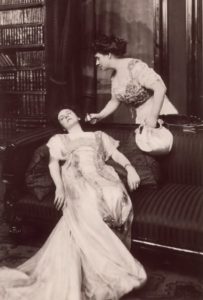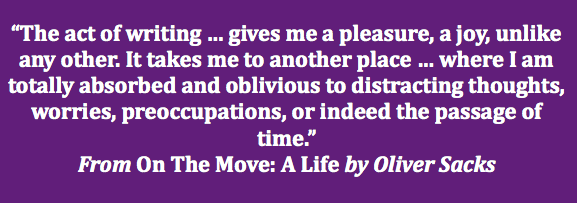Newsy! Floored: A Fainter’s Guide + Meatloaf + Another Brooklyn (v.14)
September 15th, 2016
willowwrite@gmail.com
Consider this:
Floored: A Fainter’s Guide To Life Without Trigger Warnings
Not long ago, the University of Chicago announced it does not support professors giving advance notice – known these days as “trigger warnings” – about potentially difficult or upsetting material in their classroom.
While I don’t disagree with this decision, I gotta’ say this: Throughout my life, I could have benefitted from a trigger warning or thirty. Getting a head’s up about ensuing violence, blood and gore (both real and imaginary) would have saved me from spending an undue amount of time lying on some really dirty floors. Such warnings could have spared me countless moments of humiliation and awkwardness, sometimes with my skirt hiked up around my waist, not to mention a few intense headaches and at least one trip to the emergency room.
Let me explain. When I was nine years old, I found out that I Am A Fainter. I made this discovery when my mom was slicing carrots in the kitchen and accidentally sliced her finger, too. “Look,” she said, showing me the dripping blood.
I looked. Then I took three steps across the room and passed out cold. When I came to, I was sprawled across the hardwood floor, my face dangerously close to a bowl of smelly cat food. A trigger warning, something along the lines of, “Willow, for some reason, your mom’s about to show you something really gross,” would have been appreciated.
Or consider the day a few months later, when we took a family trip to the movies to see Kramer vs. Kramer. I sat with my parents and my identical twin sister, nibbling popcorn and sipping Coke as we watched Dustin Hoffman bumble through life as a single dad. All was well until his young son tumbled from the jungle gym and landed hard on the concrete below. Which was the exact moment my twin and I simultaneously tumbled from our seats and landed hard on the popcorn-covered carpet below. Like Dustin Hoffman’s on-screen performance, our synchronized fainting was, indeed, Oscar-worthy.
Hollywood-sponsored trigger warnings could have kept me vertical during Robert Altman’s Short Cuts and the WWII film Atonement, as well as the French noir film Betty Blue (fun fact: my twin and I both fainted during this movie, which we saw separately, years apart and in different countries). Very recently I collapsed into an unsuspecting audience member while watching Miss You Already, a movie dubbed (unbeknownst to me, obviously), a “cancer chick flick.”
I’d appreciate it if book publishers would provide trigger warnings, too. During silent reading time in 4th grade, I was in the middle of The Black Stallion’s Revenge when the protagonist, young Alec Ramsey, “rubbed his raw and bleeding hands across the rough bark of the tree.” That’s when I silently slid out of my chair and not-so-silently hit the floor.
If I’m being honest, I’d need an alert system for a lot more than just books and movies. I’d benefit from trigger warnings for meals out with friends (I’ve fainted during dinner in at least two restaurants) and various outdoor adventures (that was me collapsing as I stepped off a gondola to “enjoy the view” from Albuquerque’s Sandia Mountains). I’d like trigger warnings for simply maneuvering through my house, especially the kitchen (the sharp edge of an open can needs a red alert all its own), not to mention for any trip to the dentist (duh).
On the upside, since I have been A Fainter for almost all my life, I’m sometimes able to give myself a trigger warning and successfully bypass a blackout. For one of my graduate seminars, for example, I started reading The Safety of Objects by A.M. Holmes. A few pages in, I knew there was no way I could finish the book, let alone discuss it with my peers. In class the next day, I raised my hand and told my professor I needed to excuse myself from today’s literary criticism unless he was willing to scoop me up off the floor. (He wasn’t, and I was excused.)
Given all this fainting, I think I have an unusual perspective when it comes to the current debate about trigger warnings. With the rather bizarre exception of my identical twin sister, I’m the only person I know who regularly passes out while everyone else enjoys the movie, book, conversation or run-of-the-mill encounter. I’m a perfect candidate for trigger warnings about factual and fictional blood and gore. Yet I can’t quite imagine a world where everyone gets red alerts based on my personal sensitivities – or me, theirs.
For instance, I’m not typically upset by coarse language, but a friend finds it deeply offensive. Her husband breaks out in hives at the mention of spiders, while their next door neighbor cringes deeply when she hears the word “moist” (go figure). My point is, how can we preempt every potential “hot button” issue out there, given an infinite number of personal experiences and perspectives, not to mention our infinite access to untamed, uncensored media in our perpetually plugged-in world?
I really don’t know. For my part, I think I’ll just keep on managing my forty-year-old fainting affliction the best way I know how: In the absence of mandatory trigger warnings, I’ll try to flee before the movie, book or conversation gets gory. And if I’m too late – if black spots are already blocking my vision and my head feels like it’s filling up with swamp water – I’ll cross my fingers and hope the floor below me is soft.
And relatively clean.
Cook this:
Meatloaf
I wouldn’t be surprised if meatloaf, in all its various incarnations, is a staple in your home. You might be surprised to learn I’d never eaten meatloaf, let alone cooked it, until pretty recently. But then I had a conversation with a firefighter pal who told me meatloaf was a fail-proof dinner for his firehouse crew. I don’t eat a lot of meat, but my mouth started watering as I listened to his description of sautéed onions, browned beef and a hearty dollop of ketchup, so I came home and made my own version that night. Since everyone in my family loves the Italian meatballs from Joy of Cooking, I figured, why not use that recipe and toss the mixture into a bread pan rather than form meatballs? The result was yummy – and way less time-consuming and grease splattering than browning a bunch of individual meatballs.
Meatloaf (formerly known as Italian meatballs)
1 pound ground beef
1 garlic clove, minced
1 medium onion, fined chopped
1 Tbs olive oil
½ cup grated Parmesan
½ cup of breadcrumbs
1 large egg, beaten
3 Tbs dry red wine
2 Tbs tomato paste
1 tsp salt
¼ tsp black pepper
Pinch of oregano (if you like it)
Preheat oven to 350 degrees Fahrenheit.
In a sauté pan over low-medium heat, add olive oil and sauté onion until translucent, about 5-7 minutes. For the last minute or two, add minced garlic and cook until fragrant, being careful not to brown or burn.
Meanwhile, add all the other ingredients to a mixing bowl and knead with your hands. When it’s ready, add the onion and garlic and mix ‘em in until everything is well blended. Lightly grease or spray your bread pan, then fill it with the meat mixture, mounding the top.
Place the pan on a baking sheet and bake about an hour or so, until the meat loaf is firm to the touch and has pulled away from the sides of the pan. If you’re using a thermometer, the center temperature should be 160 degrees Fahrenheit. Pour off the excess fat and let stand for 15 minutes before serving. Douse liberally with ketchup if you’re so inclined, or serve with tomato sauce and pasta.
Read this:
Another Brooklyn by Jacqueline Woodson
I spent the first two years of my life in Brooklyn, which has absolutely nothing to do with why I loved this book. Let me say this: Man, Jacqueline Woodson can write. Her latest book is packed with language that’s economical yet vivid, lyrical yet gripping. In Another Brooklyn, this New York Times best-selling author introduces us to August, a young girl transplanted from rural SweetGrove, Tennessee to an inner-city neighborhood in Brooklyn.
Brooklyn is hot, humid, crowded, colorful, confusing and, for 14-year-old August, sometimes scary. Still trying to process a deep and painful personal tragedy, August befriends three other girls her age, each of whom has her own story, her own challenges and her own strategies for escaping painful memories. As August, Sylvia, Gigi and Angela mature into young women, they must figure out how to deal with groping hands, veiled threats and outright dangers from men in their urban neighborhood. For those reasons and more, unbreakable bonds are tested – and inevitably, some fail. In this powerful novel, August transforms from an innocent girl whose often in denial to a young woman with the smarts, determination and confidence to look life, death and even Brooklyn all squarely in the eye.



